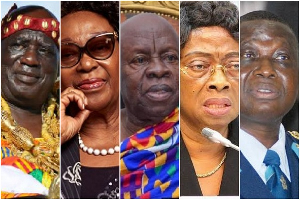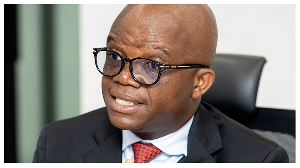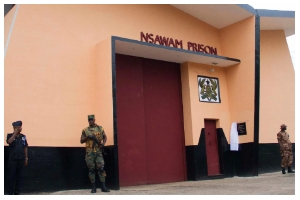I have followed the Adonko issue with keen interest since the media backlash after the now infamous concert.
As a marketing communications practitioner, my initial reaction was; 'this is bad PR for the Adonko brand!'
I also thought the company could have adopted a different approach by charging a nominal gate fee of about GHS10 and then offer the drinks for sale on the premises like most event sponsors do.
In my opinion, what made the event successful was not the availability of Adonko bitters but the lure of top talents like Shatta Wale and the rest so they could have offered a sold out concert, made money from gate proceeds and also mounted activation stands to sell the drink.
Despite the fact that the company’s motive as advertised was to reward loyal customers of Adonko Bitters, I believe a different approach could have been better.
However, i was shocked when media reportage indicated that the Food and Drugs Authority (FDA) had banned the Adonko drink, fined the company GHS25,000 and also asked them to withdraw the product from the market. I was a bit confused and decided to dig a bit further to understand the FDA's rationale.
Apparently, the FDA's premise for this extremely high handed reaction was apparently only linked to the infamous Baba Yara event!
Let me explain why the FDA's reaction is an overkill and highly injurious to an aggressive indigenous brand that offers jobs to thousands of people.
First of all, the FDA's reaction has delivered reputation damage to the brand. All over the world, product withdrawals and recalls are linked to product defects. My instinctive reaction after i heard the ban was to assume someone had suffered an injury through the consumption of the drink; however that was not the case.
The FDA argues that the company flouted its directive against using celebrities to advertise a product. In my opinion, that directive even goes against an artiste or celebrity’s fundamental right to earn an income and I was surprised it has not been challenged in court by any actor/actors guild/MUSIGA or any relevant body.
However that is a topic for another day.
In as much as i totally disagreed with this directive when i first heard it in the 'Kwame Djokoto' case I even think it has totally been misapplied. Drink companies all over the world and in Ghana sponsor music concerts.
It's rather the norm than the exception since you don't expect a Bank brand to sponsor a night club event.
So if the FDA arguing that alcoholic beverages in Ghana are no longer allowed to sponsor concerts? If they do, are they not allowed to offer the drinks for sale at discounted prices? I agree with the FDA’s argument that using the drink as “gate-fee” made it compulsory for everyone to acquire the drink but let me add that in as much as I was uncomfortable with the strategy; it didn’t make it mandatory for everyone to consume the drink. The drink also has a label which states explicitly that it was for adults (18years +) and also admonishes people to drink responsibly.
I also think the FDA’s severe stance and “bully-boy” approach is because the company is a small indigenous firm. Will the FDA have banned Guinness if they organized an event and people supposedly got drunk? I have attended many such events where reputable alcoholic drink companies made free drinks available and people obviously got drunk. Did we hear of the FDA?
When Guinness appointed Shata Wale (a celebrity) as an ambassador why didn't the FDA ban them?
The FDA also acted based on various assumptions and the questions that immediately come to mind are;
1. How did the FDA assume minors attended a late evening event?
2. How many people attended the event?
3. What percentage of those who attended were minors?
4. How many people got drunk?
5. Of those who allegedly got drunk, what percentage were minors?
I am in no way advocating for irresponsible behaviour or abuse of alcohol but the law must be applied equitably and I believe the FDA's reaction is an abuse of institutional might.
Maybe I am being presumptuous like the FDA but I believe many sub-standard products are imported daily into this country and are sold openly on our markets but the FDA does not bat an eye lid. However it is prepared to collapse an indigenous company that has broken through the strong competitive environment and unfavourable business climate over the past few years to create jobs for thousands of people!
I don't know what informed Adonko's decision to adopt the strategy they used but their core competence and competitive advantage is alcoholic beverage manufacturing and not event organization. Moreover, the FDA did not give them the license based on their ability or inability to develop exciting activation events but by their capacity to manufacture a safe alcoholic beverage for consumption.
In my opinion the Ministers for Business Development, Trade and Industry should directly intervene since this is not an Adonko-FDA issue but about the protection of indigenous firms. I am in no way saying the company should not be punished if it's deemed to have flouted some laws but asking for product recall is in my opinion an overkill, illogical and not well thought-through.
You don't punish to destroy but you punish to reform especially when the act is peripheral and does not go to the fundamentals of the company’s core business and competitive advantage. This is akin to issuing an unjust death penalty!
What is worse and probably devious about the FDA's action is the statement that “they are still investigating”. So what happens to lost sales and reputational damage if their investigation absolves the company?
Assuming without admitting that Adonko erred, fining the company and asking them to withdraw their products is “double jeopardy” that will cost the company probably millions in lost sales. The FDA's action has also caused the brand an expensive reputational damage cannot be quantified!
I strongly believe that delivering a mortal damage to an indigenous brand that employs thousands of people because of an extraneous activity not linked to its core competence is shocking and unless some underhand currents are involved, the high handedness beggars belief and ought to be reversed or revised.
Opinions of Tuesday, 2 May 2017
Columnist: Nana Yaw Kesse



















